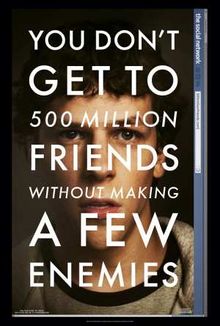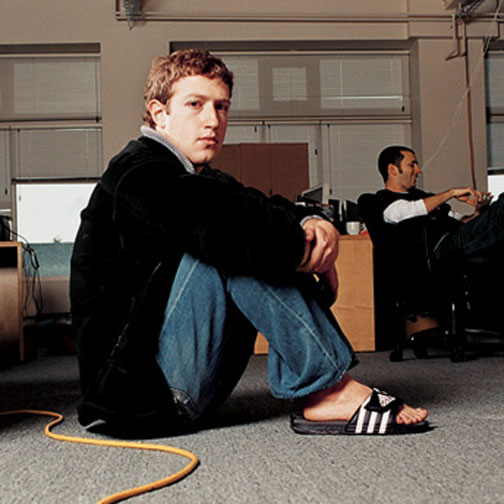

The creators of Facebook, Amazon, YouTube, eBay, and countless others are revolutionary in their own right, but their achievement stems from that of a select few individuals in the 1980s. Martyn Burke’s 1999 film Pirates of Silicon Valley chronicles the experiences of Bill Gates (Anthony Michael Hall) and Steve Jobs (Noah Wyle) as they build the personal computer industry from the ground up.
We are introduced to these computing giants at a convention in 1997 where they’ve reunited after what most would term a rocky relationship during the ’80s. Then we are jumped back to Berkeley and Harvard in the ’70s where both are attending college.
“Information is power,” Jobs says after they’ve devised a box capable of calling the Pope. Eventually, he and cohort Steve Wozniak devise a computer (encased in wood) that they claim to be the first computer for the average person. If it’s perfectly obvious now, it’s made clear just how revolutionary the concept was back then as they show it to Wozniak’s boss at Hewlett-Packard.
“What on Earth would ordinary people want with computers?” his boss asks.
Undeterred, they continue filling orders for their new company, Apple, which is probably the first and last company to ever use a band saw in their production of computers. Around this time Jobs hears of this company called Microsoft and Gates hears about this company named Apple. Their paths intertwine as they develop their respective companies and butt horns with each other, in an exciting tale of the coming of age of computer technology.
The film shares some interesting similarities with The Social Network. Gates, like Zuckerberg, was a nerd of sorts who dropped out of Harvard, and Jobs shares with him the same sort of slacker “I don’t wear socks to work” sort of transformed hippie mentality. All succeed despite their personalities, which constantly threaten to get in the way of their progress.
Both stories deal with the ideas of intellectual property theft. Is what they do stealing? Facebook borrows/steals/improves The Harvard Connection. Microsoft uses Apple’s operating system as a guide, which Apple got from Xerox. Even earlier, Microsoft sold an idea to IBM that they didn’t even have. In a mad dash, they buy some guy’s operating system for $50,000 and flip it to IBM for millions. Savvy business, or unethical? Is it both? It’s not so clearcut a question. These, for lack of a better phrase, ripped-off ideas have generated billions of dollars and changed the way we communicate and function on a global level. What I do know for sure is that these stories have given us excellent fodder for entertainment. If you enjoyed watching 23-year-old Mark Zuckerberg climb to the top of the Internet food chain in The Social Network, check out Pirates of Silicon Valley.

We know that Mark Zuckerberg enjoyed Saturday Night Live’s portrayal of him (even if he was confused by its hoverboard jokes), but the reports so far that Zuckerberg may have even ducked into a screening of The Social Network for personal reconnaissance were inconclusive, at best. Over the weekend, though, Zuckerberg admitted to an audience at a start-up conference that he did, in fact, check out the David Fincher film. How did he feel about a movie that will forever paint him as a woman-hating, status-obsessed creep? Kinda charitable, actually!
The relevant bit starts in the video above about five minutes or so in, when Zuckerberg is asked about the film’s accuracy:
“I mean, where do you want to start? I don’t know. It’s interesting what stuff they focused on getting right; like, every single shirt and fleece that I had in that movie is actually a shirt or fleece that I own. So there’s all this stuff that they got wrong and a bunch of random details that they got right. The thing that I think is most thematically interesting that they got wrong is the whole framing of the movie. The way that it starts is that I’m with this girl who doesn’t exist in real life who dumps me — which has happened in real life a lot — and basically, they frame it as if the whole reason for making Facebook and building something was because I wanted to get girls or I wanted to get into some sort of social institution. The reality for people who know me is I’ve actually been dating the same girl since before I started Facebook, so obviously that’s not a part of it, but I think it’s just such a big disconnect from the way that the people who make movies think about what we do in Silicon Valley, building stuff. They just can’t wrap their head around the idea that someone might build something because they like building things.”
